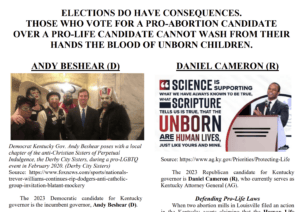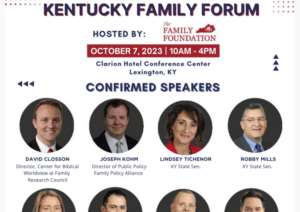“The U.S. Conference of Catholic Bishops (USCCB) has done what the USCCB always does: muddied the waters, by issuing statements on a host of different political issues – including many of which good Catholics have differing opinions, and on which Catholic bishops have no special expertise,” points out Phil Lawler (CatholicCulture.org).
As Lawler notes, the USCCB has issued statements on the federal budget, immigration law, a ban on landmines, affordable housing, a warning against the invasion of Iraq, a call to end the embargo on Cuba, budget cuts, the federal food stamp program, and nuclear weaponry. The USCCB also issued a list of legislative issues with which the bishops are concerned, including foreign policy, healthcare, climate change, mining, copyrights, and digital television.
As Lawler points out, the USCCB has been making statements on all sorts of political issues, many of which involve prudential judgment, making a claim that they are speaking as moral leaders. “Regrettably, this approach squanders the very authority that the USCCB so frequently invokes.”
Prudential Judgment
As with the issues stated above, reasonable Catholic minds can and do disagree. On such issues, Catholics need to base their positions on the social teachings of the Catholic Church, but they still differ on what may be the best form of legislation, expenditure, or approach to address such issues. These issues require a prudential judgment, for which there is not just one “Catholic” answer or approach.
For example, as with the issue of the death penalty, Catholics within the social teachings of the Church may well disagree on whether the government should or should not impose capital punishment for certain serious crimes. To say or imply that capital punishment administered by the state, under proper safeguards, is immoral, is to contradict the clear teaching of the Catholic Church. Such statements by Church authorities, or their bureaucracies, undercut the moral authority of the Church. Many Catholics who do support the state’s right to impose capital punishment are misled into thinking that they can also disagree with the Church’s clear teaching about the intrinsic evils of abortion, contraception, euthanasia, homosexual activities, and embryonic stem-cell research, which are moral matters on which Catholics cannot disagree.
Archbishop John Myers of Newark, New Jersey, noted that the “Church’s social teaching is a diverse and rich tradition of moral truths and biblical insights applied to the political, economic, and cultural aspects of our society.” He added, however, that “reasonable Catholics can (and do) disagree about how to apply these teachings in various situations.”
He gave the example of the preferential option for the poor and how Catholics can legitimately differ on methods to assist the poor – “both those who propose welfare increases and those who propose tax cuts to stimulate the economy may in all sincerity believe that their way is the best method really to help the poor.”
Cardinal Dulles
In 1982, the renowned theologian, Fr. Avery Dulles, S.J., later made a Cardinal by Benedict XVI, warned the U.S. bishops:
“The bishops and clergy who write and issue the statements lack sufficient expertise to speak with authority about many of the questions addressed. …While sometimes disclaiming a special competence, they nevertheless advocate positions that presuppose such competence.
“By issuing policy statements on matters that lie beyond their specific competence, and that pertain rather to experts in secular disciplines, the bishops diminish their own credibility in speaking about matters with which they are specially charged as spiritual leaders of the Church.”
Fr. Dulles continues with the observation:
“The bishops, or those who compose policy statements on their behalf, can hardly avoid introducing their own political and economic biases, which should on no account be confused with the teaching of the Church. …By opting for certain positions on matters legitimately debated among committed Catholics, bishops tend to marginalize Church members who have different social or political orientations.
“By framing official Church positions on social and political policy matters, the bishops and clergy arrogate to themselves functions that more properly belong to the laity, as persons regularly and continuously involved in secular affairs.”
“By opting for certain positions
on matters legitimately debated among committed Catholics,
bishops tend to marginalize
Church members who have
different social or political orientations.”
– Cardinal Avery Dulles
Archbishop Dolan
Writing in The Wanderer, columnist Christopher Manion relates an incident where New York Cardinal Timothy Dolan, past president of the USCCB, realizes that in order to protect the moral authority of the Church, it is necessary for the bishops to realize the limits of authority.
As Manion points out, two bishops sent a letter to members of Congress opposing what they called “substantial reductions” in the government welfare programs. The USCCB “Government Relations” office followed up by urging Catholics to lobby their representatives to oppose a long list of specific budget cuts.
Shortly thereafter, Cardinal Dolan issued a letter of his own in which he stated: “…people of goodwill might offer and emphasize various policy proposals that reflect their experience and expertise. …we bishops are very conscious that we are pastors, never politicians. As the Second Vatican Council reminds us, it is the lay faithful who have the specific charism of political leadership and decision (Lumen Gentium, 31; Apostolica Actuositatem, 13).”
Manion compliments Archbishop Dolan, stating: “He celebrates the laity’s efforts and their distinct role in crafting political and social policy, rather than arrogating that role to himself and his episcopal colleagues.”
Manion also relates the story that when a nobleman asked Cardinal John Newman’s view on the laity, he responded, “Without them, my Lord, the hierarchy would look rather foolish.”
Intrinsically Evil Acts
The U.S. bishops would be well advised in their efforts to focus their moral authority on the issue of religious freedom and on issues involving intrinsically evil acts. For if they do not respect the role of the laity on issues of prudential judgment, the laity may soon grow weary and no longer respect the Church’s clear and consistent teachings on the non-negotiable moral issues, e.g., abortion, euthanasia, artificial contraception, same-sex so-called “marriage,” homosexuality, transgenderism, embryonic stem-cell research, cloning, etc., to which Catholics are obliged to assent and adhere.
At the same time, faithful Catholics must assist others with the reality that even though they may disagree with the bishops on a number of the bishops’ political positions, they must still accept the doctrinal teachings of the Church on moral issues.
It is crucial to the defense of religious freedom and to the defense of the sanctity of all innocent human life, that both the hierarchy and the laity understand, appreciate, and promote their different roles in the political sphere, and in the marketplace of ideas.



